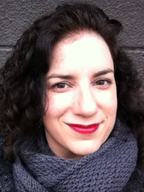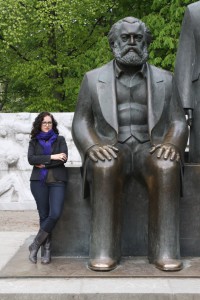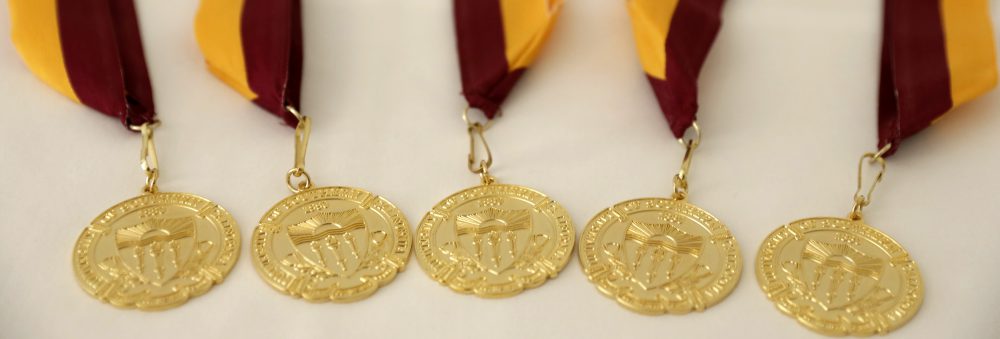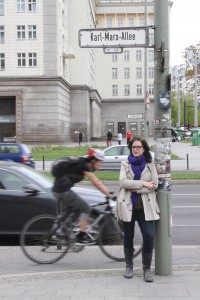 by Adam Feinman
by Adam Feinman
Sarah Goodrum is a Ph.D. candidate in Art History. She was awarded a Fulbright Research Fellowship for the 2012-2013 school year and a Dissertation Fellowship from the American Association of University Women (AAUW) for the 2014-15 school year. She’s now in Germany, researching the photography of East Germany during the Cold War.
AF: Have you applied for many fellowships?
SG: Over the course of my graduate career, including when I was working on my Masters degree at Vanderbilt, I’ve applied for lots of fellowships. I’ve only ever won one per round of applications though.
AF: How did you find out about all those fellowships you applied for?
SG: The Art History department at USC publishes a list of fellowships and invites students to apply to be nominated for them. Some of these fellowships are specific to particular research areas. In my case, I have found fellowships specifically for research in Germany, as well as more general research and writing grants. I also signed up for email lists that will send out notifications for fellowships and news in my field.
AF: What was the application process like for you?
SG: It’s very hard at first because the time when you start to apply for things is early in the dissertation process, even before you really know exactly what you’re doing. You’re inventing the wheel, but in some ways, you’re not limited by your capacities, only by what you can conceive of. Once you’ve applied a couple of times, you reformat your project description for different contexts. Some applications have specific requirements (e.g., provide a bio and timeline or a project budget) but it becomes a matter of updating an existing application.
AF: What did you gain from the process itself?
SG: It’s great because it forces you to re-evaluate what’s going on in your project. It requires you to do a certain amount of reflection. Every year you’re forcing yourself to re-describe your work and plans more accurately. It can be encouraging to watch how the project has changed.
AF: How did you go about getting letters of recommendation?
SG: It should be obvious who to ask, but if it’s not, you should talk to the head of graduate study in your department, as well as your personal advisor and/or committee. Those are the people who have your back.
AF: Do you think there was any difference between fellowships applications that were awarded vs. not awarded?
SG: Hard to say. You never know what that particular set of readers is looking for. Every fellowship is worth applying for, and it’s impossible to predict what you’ll win. And if you don’t apply, you definitely can’t win! I didn’t expect to get a Fulbright.
AF: Do you have any advice concerning the fellowships you were awarded?

Photo by Anicia Timberlake
SG: AAUW is an organization that is specifically geared toward advancing women. They will want to know that you are someone that can represent the organization, a type of scholar that will further women through education. In the application, there was an opportunity to mention how you would, as an educator, foster women’s education. I didn’t massage my project description to awkwardly fit their agenda, but rather took a stance on women’s education and just hoped they’d like me. In general, it is good to tailor your app somewhat to the organization you’re applying for, but I wouldn’t try to shoehorn your project too awkwardly into what you think the granting institution wants. My general advice for everything from the Fulbright to more specialized grants would be to present your project with enthusiasm and rigor in a way that readers outside your specific field can access.
AF: How has the having these fellowships changed your experience as a graduate student?
SG: It’s certainly easier to get work done when you don’t have to worry about money! If you need to travel somewhere and someone hands you $5,000 to travel and do your work, you can get your work done under much less stress. The fellowships have allowed me to not have to move back and forth between Germany and LA. I can just stay here and focus on my work. Travelling for research is very expensive. Exchange grants that pay for travel are extremely helpful. They can make it easier to go abroad (i.e., Fulbright), get visas, get registered at a university, etc.
Fellowships open doors. It gets your momentum going. Once you get good at applying for them, it’s not as stressful to write new applications, and fellowships beget fellowships. It’s amazing how much networking comes from being in a community of fellows.

